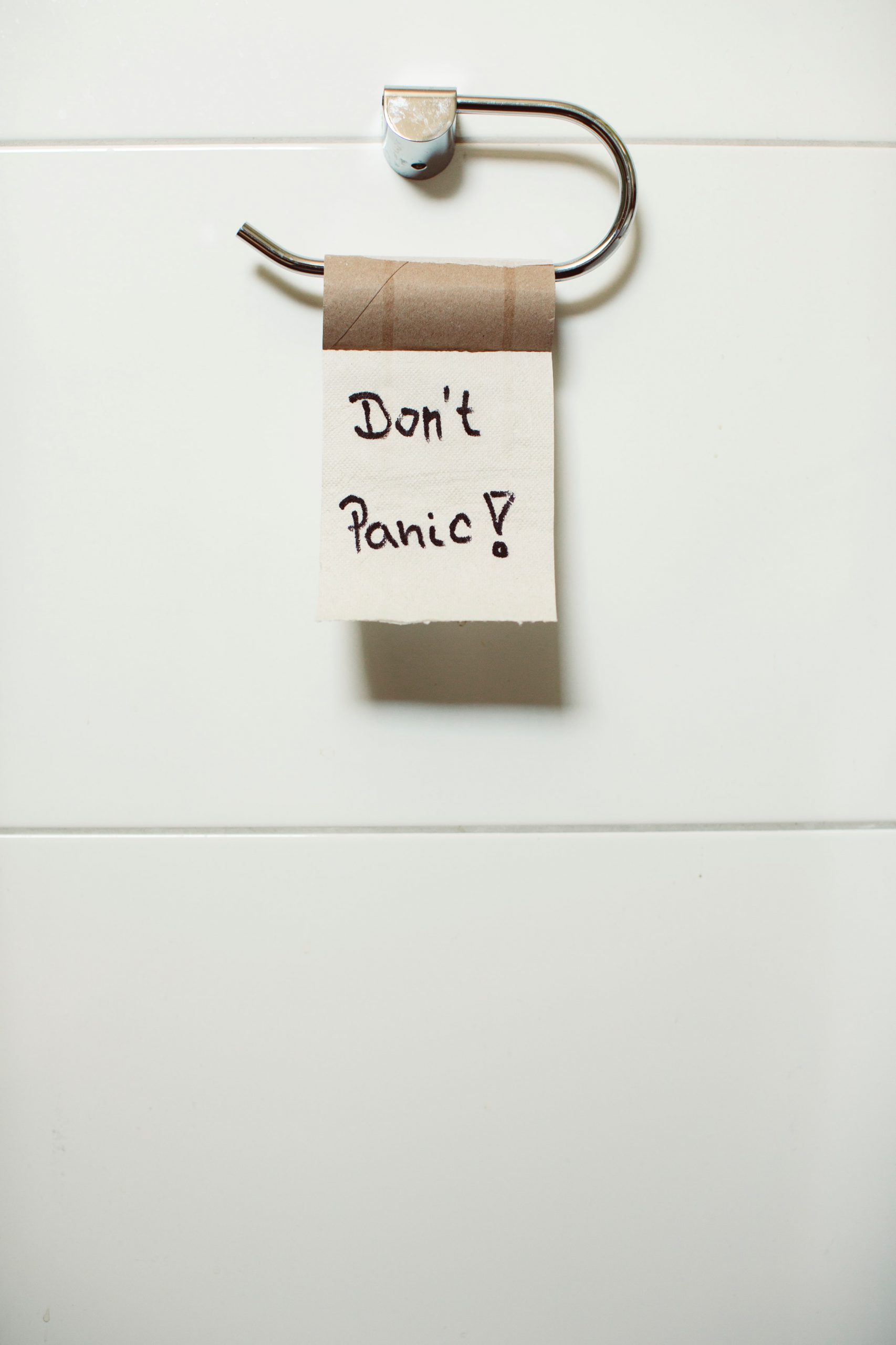Dear Fellow Migraine Sufferer (aka FMS—yes, I’m one too),
COVID-19 has affected our lives in ways we never imagined. People are feeling the financial pinch or, worse, losing their jobs. Grocery shelves are empty and there are long lines just to get in the stores. Meanwhile, people wonder, will I get coronavirus from touching this apple or cereal box? Being out in public seems utterly dystopian; the streets are empty and people stand as far away from each other as possible and are wearing masks and gloves instead of smiles. Children are home, and suddenly, working parents are juggling telework with homeschooling or entertaining bored toddlers. Friends and family are wondering when they’ll be able to see each other again–next week? Month? Year? Never? Loved ones are getting sick or even dying. Doctors and nurses globally are at their wits’ end. Emotions are all over the place: fear, anger, sadness, grief, insecurity, denial; in fact, most Americans report feeling emotional distress from coronavirus. It’s. So. Much.
It’s especially so much for you, my dear brain-sensitive FMS. Often, with increased stress and anxiety comes an increase in migraine intensity or frequency; it’s unfortunately how we are wired. The current pandemic is an understandably stressful situation for all of us.
Nonetheless, even in a global crisis the stress isn’t insurmountable. Here are a few tips to help get through these difficult times:
- Relaxation techniques: take deep, slow, belly breaths. Even 1 minute of this can make a big difference. Visit my colleague’s site, http://www.dawnbuse.com/, for some guided relaxation recordings. Or consider streaming a YouTube video of gentle yoga or relaxation techniques; there are tons out there.
- Practice mindfulness meditation: This is a form of relaxation, but taken one notch above. There is a good body of research showing that mindfulness meditation is helpful in migraine, both as prevention or even during an attack. Need help starting? Consider downloading apps like HeadSpace or Calm.
- Go take a walk or run: Repetitive movements like walking and running have a meditative effect, and there’s the added bonus of endorphin release which acts like a natural pain reliever. Walking and running also improve your posture, which can relieve any neck strain that might be contributing to your headaches.

- Practice gratitude: Current events and private issues these days can be overwhelming. Take time to bring into your personal headspace those things that make life worthwhile to you. Gratitude jars may seem cheesy, but they work: get a mason jar (or other container), and on small scraps of paper, write something you’re thankful for, and put them in the jar. It’s helpful to write one thing per day to keep it from being overwhelming. Keep your jar in an easily accessible place for those times that are particularly tough, and bring those pieces of paper out to help you remind you of those good things that really matter.
- Sleep: Prioritize it. Lack of sleep is a big migraine trigger, and it can also cause increased anxiety and depression which can also be triggers. Aim for 7 to 9 hours of restorative, continuous sleep per night. Practice good sleep hygiene. Avoid screens, overly stimulating activities, or heavy reading one hour before bedtime. Avoid caffeine use in the afternoon and limit yourself to 2 cups per day (caffeine amps up the stress response, by the way). Avoid alcohol altogether, which may help you fall asleep, but nonetheless may prevent you from getting deeper levels of restorative sleep. Having racing thoughts? Try that mindfulness meditation app at bedtime to slow things down.

- Suddenly with tons of time on your hands? Engage in joyful activities, and be sure to mix it up. Exercise. Read a book. Get back into those hobbies you’ve been neglecting. Yes, we need to socially distance right now, but be sure to maintain contact with family and friends virtually or by phone. Hug the loved ones you are isolated with, as long as they’re not sick or haven’t been quarantined. Experiencing joy increases dopamine in the brain which, just like those endorphins, is a natural pain reliever.
- Listen to the experts: COVID-19 may be an unusual and dangerous virus, but practicing social distancing allows you to say safe, healthy, and secure. It’s worth it in the long run and will allow society to eradicate this nasty virus for once and for all. We can’t control that COVID-19 has affected our planet, but we can control our response to it. Bottom line, don’t panic, act.

- Tried everything but it’s all too much? Speak with a mental health provider. Thankfully in these difficult times, many are available via telemedicine. Find a provider in your area by visiting https://www.psychologytoday.com/us.
These aren’t cures for migraine, but they can help. Of course, if you’re struggling to control your migraines, feel free to contact us for an appointment. We provide telemedicine visits too!
Virtual hugs to you all,
Stephanie Vertrees, MD

